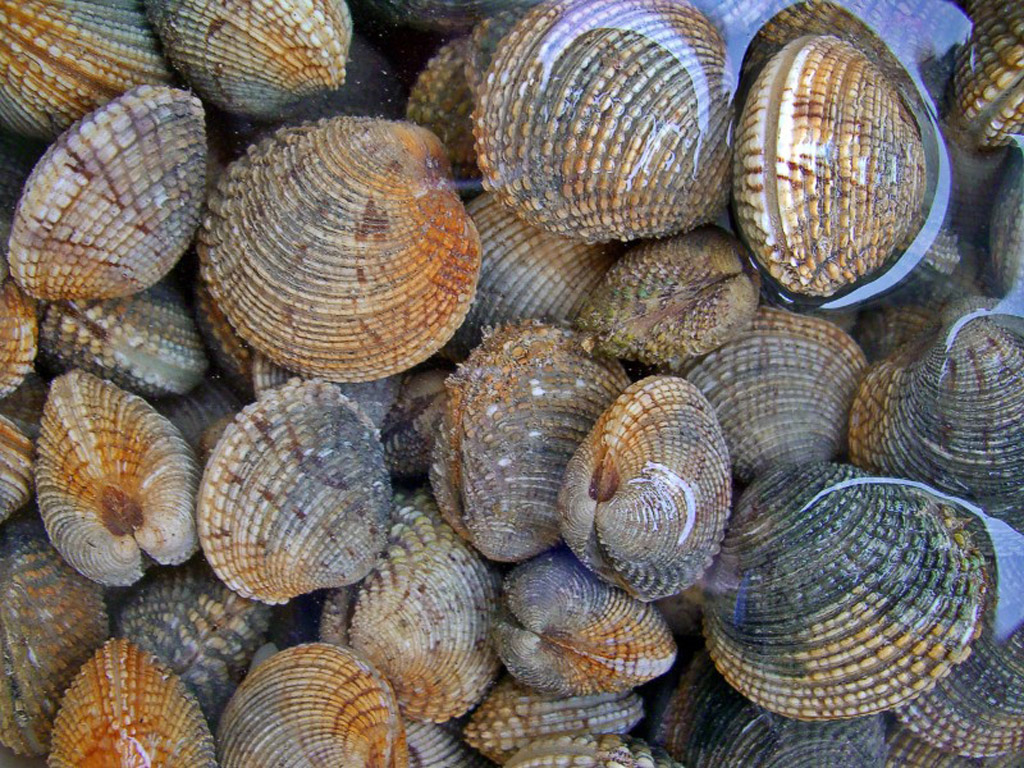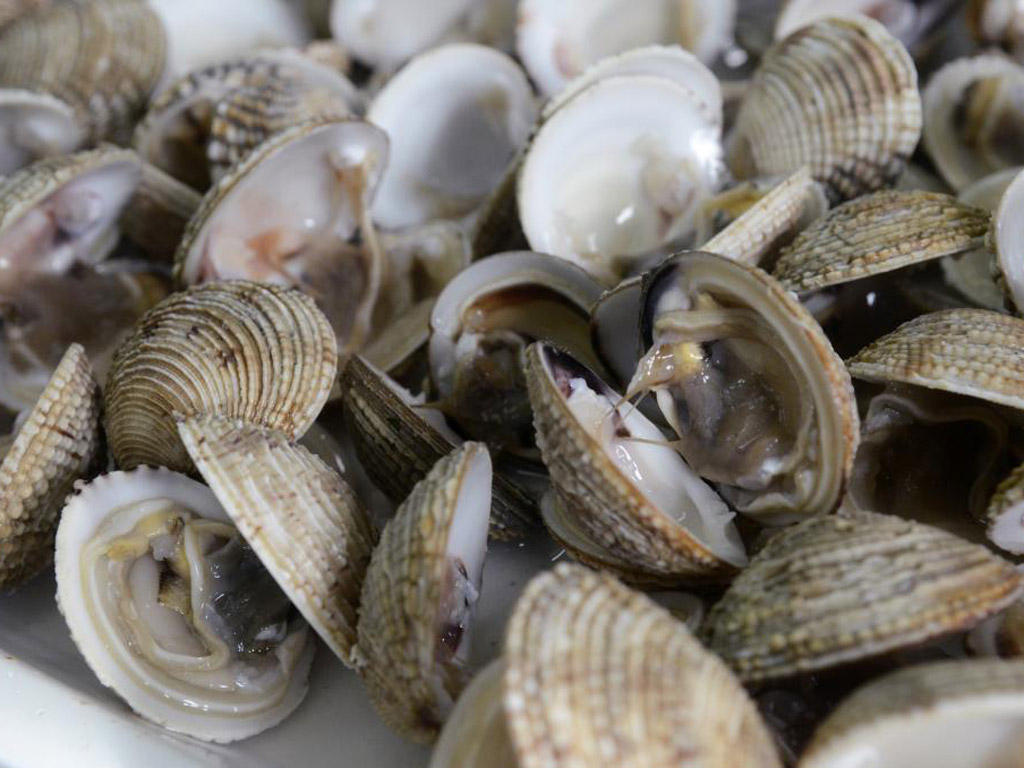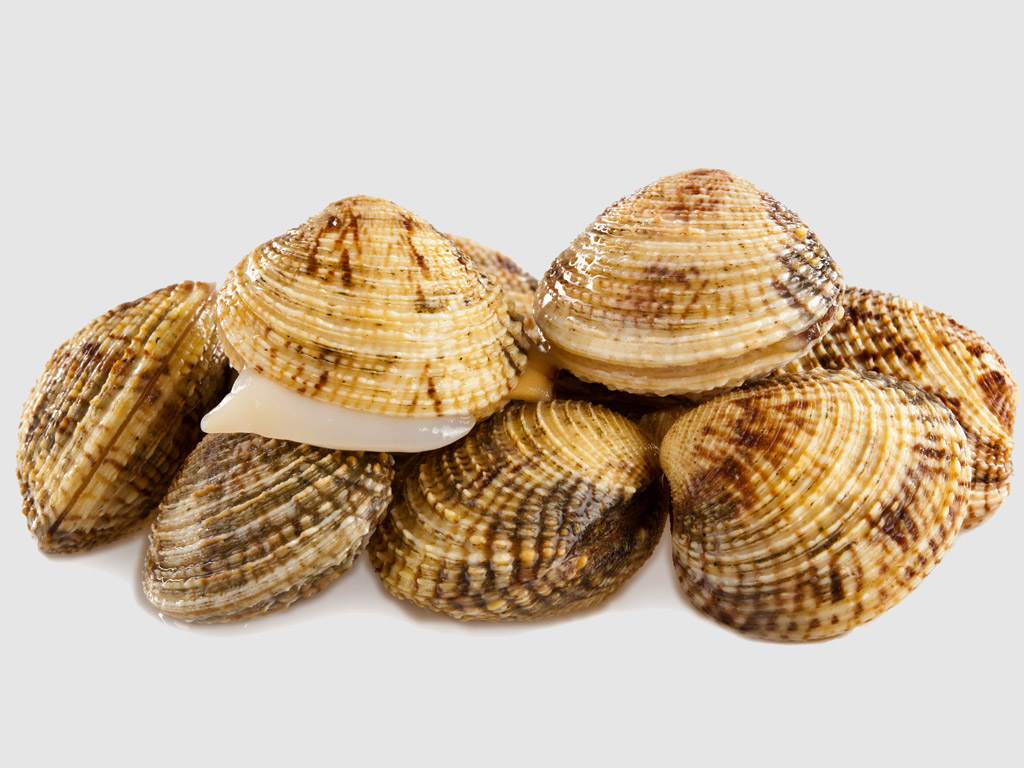
Warty venus
lat. Venus verrucosa
Warty venus
Energy and nutritional value
Althought they are not rich in fat, warty venus has a significant amount of valuable omega 3 fatty acids that protect from chronic diseases and cancer. Shells have a unique compound of omega 3 fatty acids (EPA and DHA) similar to oily fish. These are beneficial to cognitive functions and protect from chronic disease.
Besides valuable fats, shells are great source of vitamin B12 that participates in maintaining bone health, red blood cells, eyes and brain.
100g of fresh shells ensures 824% of recommended daily intake , i.e 49.4 mcg. In addition, shells are great source of zinc. Only four oysters meet the daily need for it , i.e. 10 mg. Zinc is important for our immune system and acts as an antioxidant.
Furthermore, shells are a source of iron. It has been reported that particularly women suffer from the lack of it and 150 g of mussels meet the daily need for it. Shells are also rich in magnesium, potassium, vitamins A and C. In addition, they are considered a great source of ionide and selenium. Interestingly, shells are reported to be one of rare animal sources of vitamin C. They are also a source of choline that plays an important role in maintaining healthy liver and prevents the development of nonalchocolic liver disease. Besides liver, choline protects brain as well and it has proven beneficial to memory.






